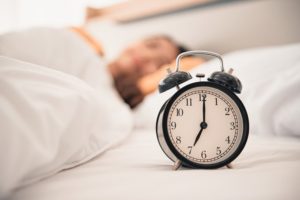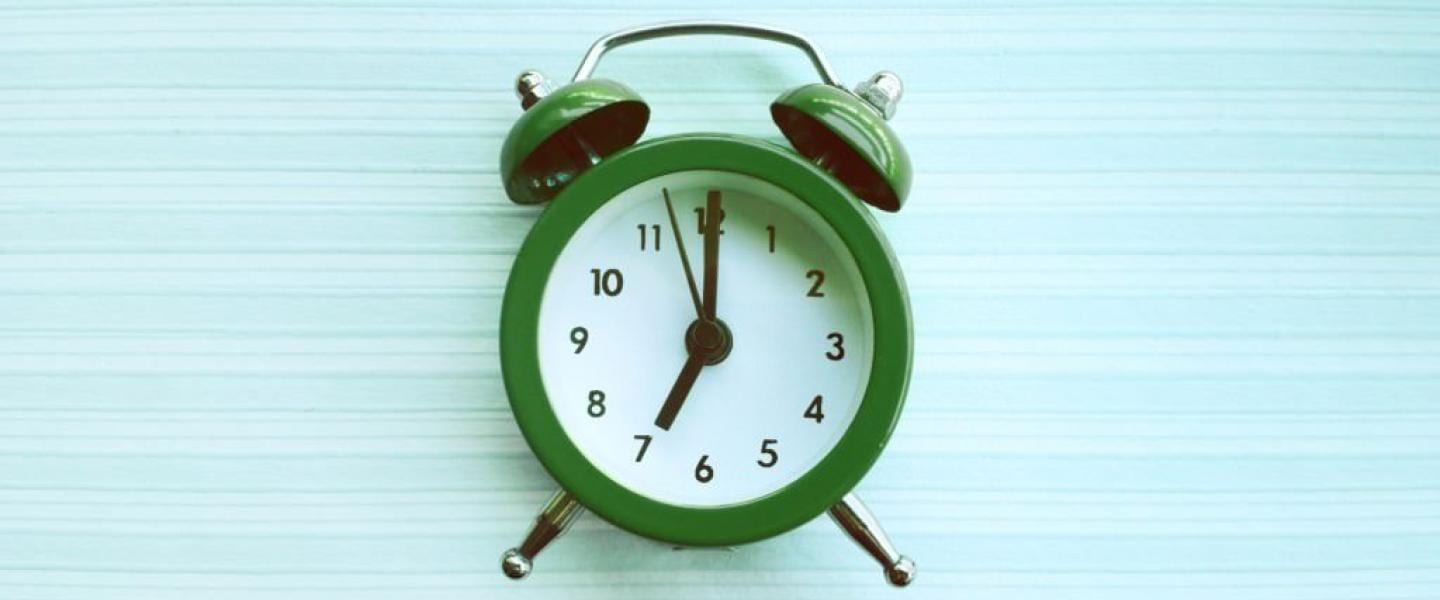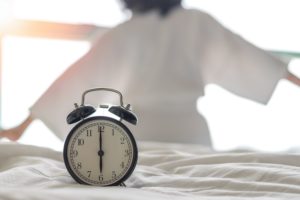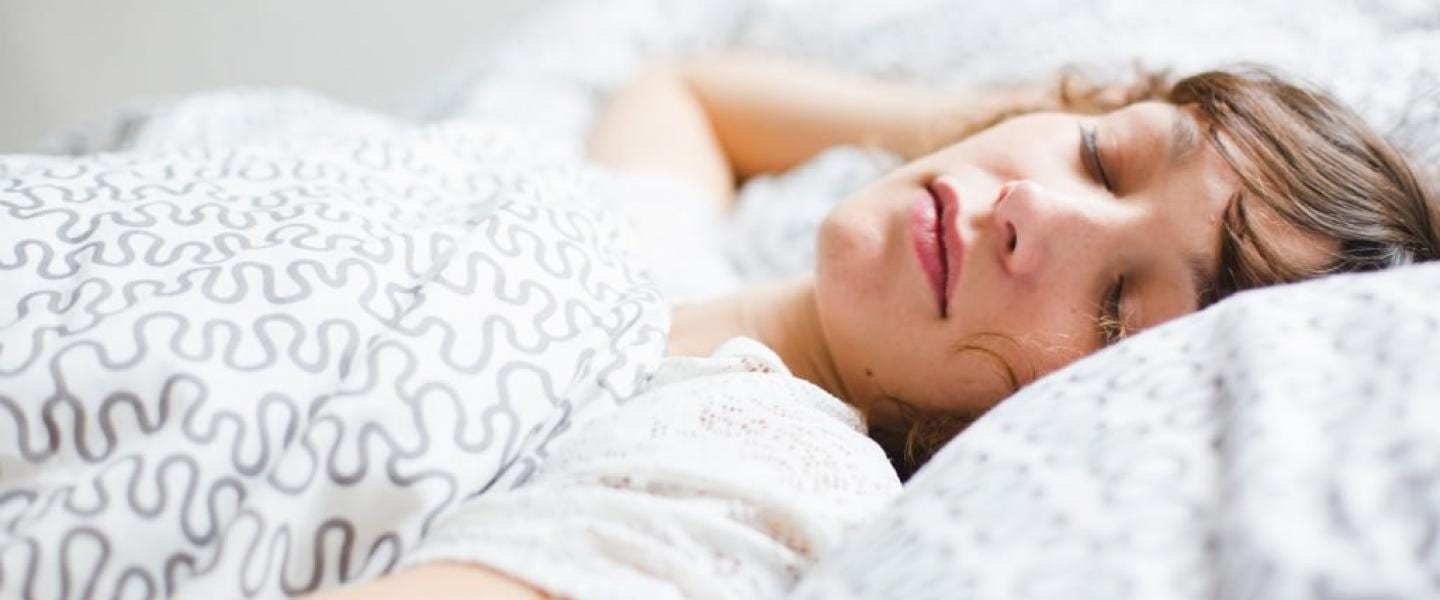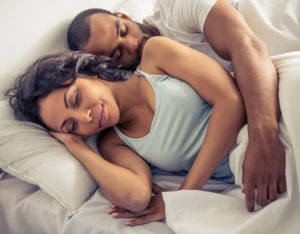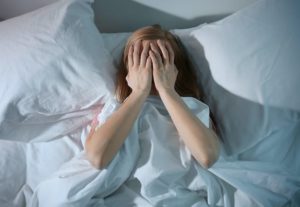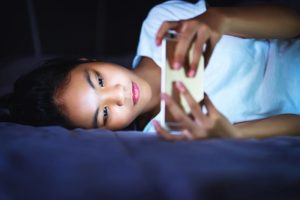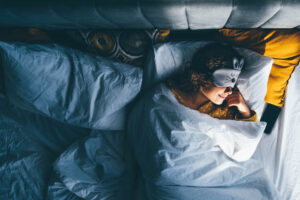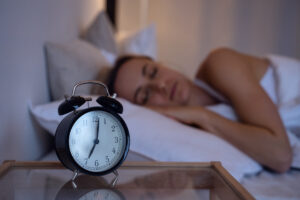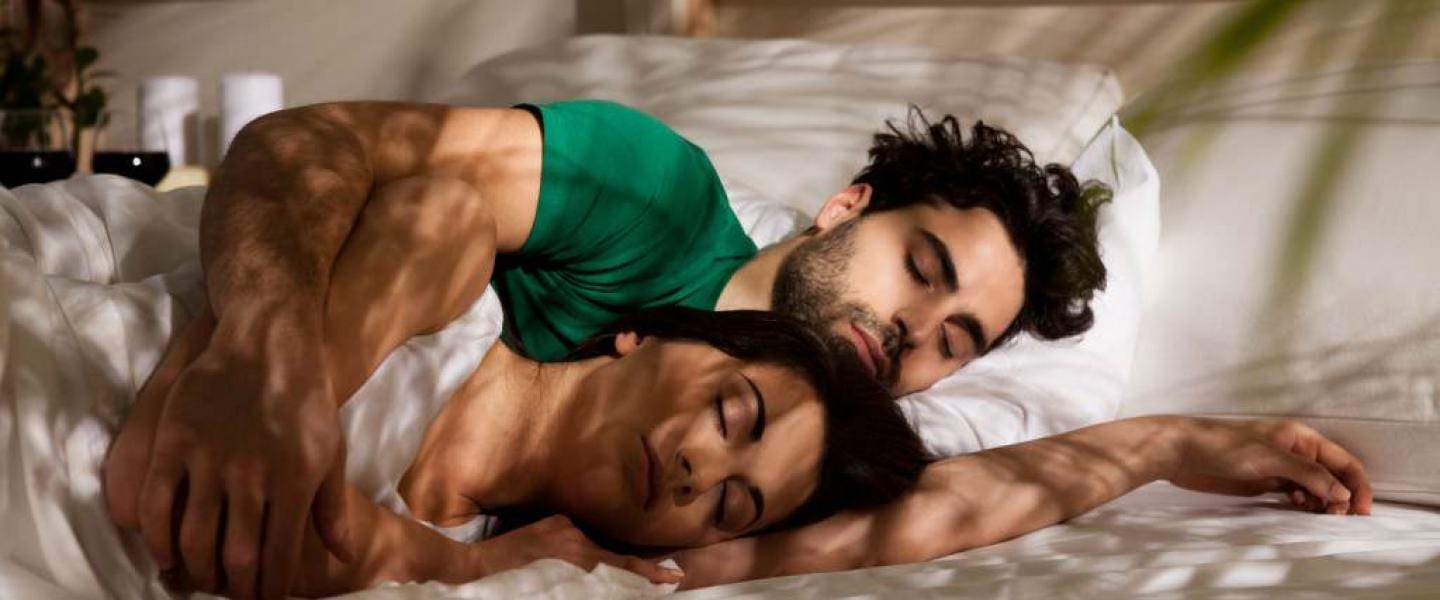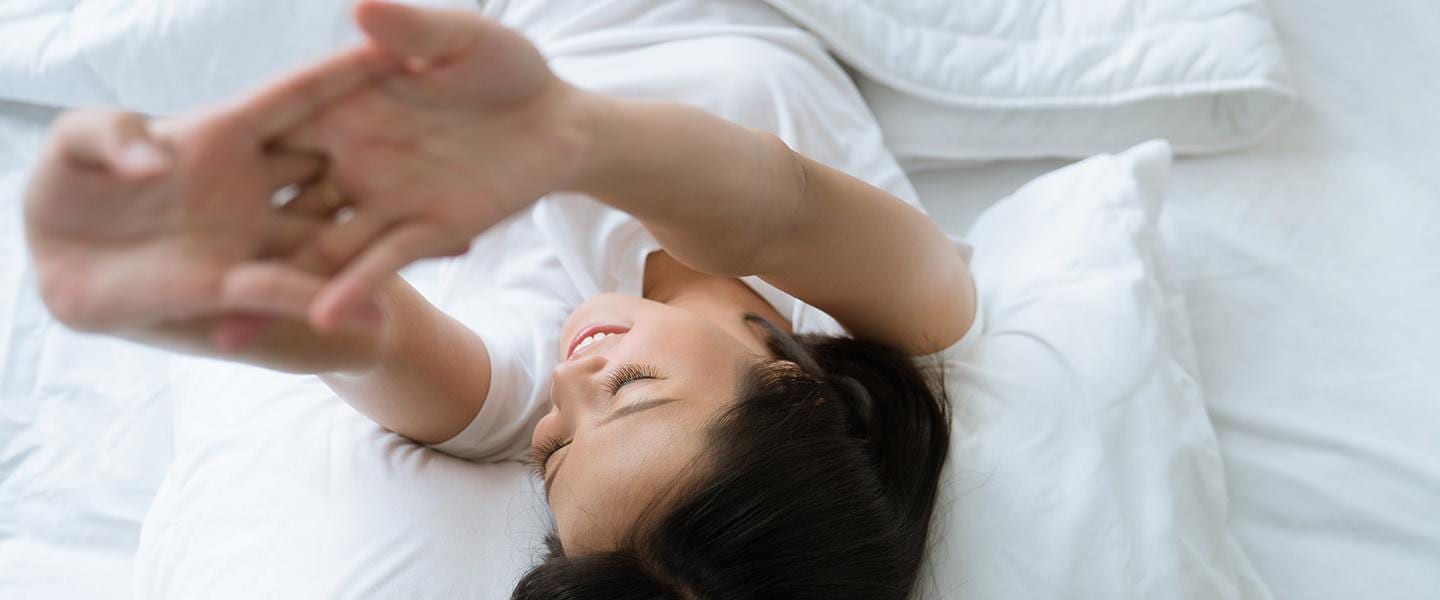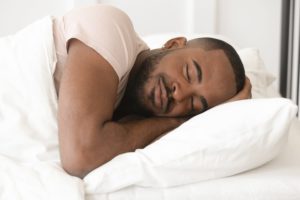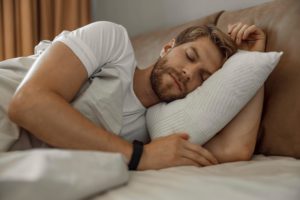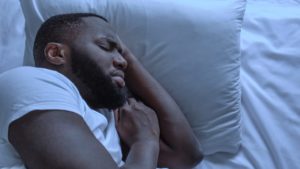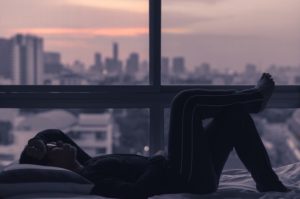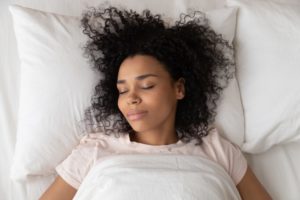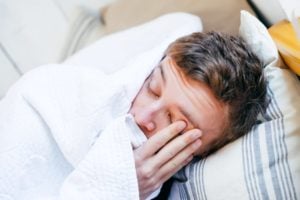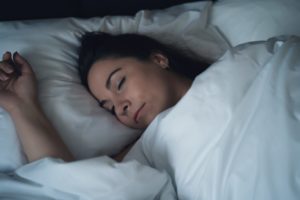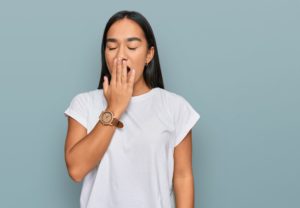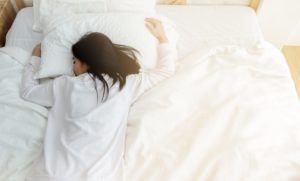When you buy through our links, we may earn a commission. Products or services may be offered by an affiliated entity. Learn more.
Sleep and Social Media
There’s no doubt that social media has transformed the world we live in. An ever-increasing number of social media services allow users to connect with people all over the globe in an instant, providing connection, news, and endless entertainment.
For many users, social media is a constant presence. Whether it’s to find information, chat, or share pictures, the majority of Americans check their social media at least once daily and many continue to look at social media close to bedtime.
Unfortunately, social media and sleep don’t mix well. Excessive use of social media close to bedtime can reduce sleep quality and increase the risk of a multitude of sleep issues.
Does Social Media Have an Effect on Sleep?
Checking social media, sending emails, or looking at the news before bed can keep us awake, as nighttime use of electronics can affect sleep through the stimulating-effects of light from digital screens.
While all light can interfere with our circadian rhythms, the 24-hour internal rhythms that control processes like the sleep-wake cycle, the blue light emitted from electronic screens has the greatest impact on sleep. Blue light stimulates parts of the brain that makes us feel alert, leaving us energized at bedtime when we should be winding down.
The impacts of blue light exposure may be worse for those who wake up to check their phone after falling asleep. Approximately 21% of adults say that they wake up to check their phone during the night, leaving them at an even higher risk of losing sleep and developing a sleep disorder like insomnia.
The pull of checking social media before bed may be too hard to resist. A poll of hospital employees and university students found that a staggering 70% of people report using social media after getting into bed, with almost 15% spending an hour or more doing so each night.
Looking to improve your sleep? Try upgrading your mattress.
Fear of Missing Out
One reason for the excessive use of social media before bed is the fear of missing out, commonly referred to as FOMO. Social media presents us with endless opportunities for interaction, yet only so much time in the day. FOMO is one response to this dilemma, characterized by a never-ending desire to stay connected to what others are doing and seeing.
People who experience more FOMO are more likely to check their social media within 15 minutes of trying to sleep, significantly contributing to sleep issues. Those with high levels of FOMO are also more likely to check their social media during other inappropriate times, such as during university lectures and while driving a car.
Social Media and Youth
Research supports the common observation that young people are always on their phones. Around 95% of adolescents have access to a smartphone and, not surprisingly, around 45% report being online “almost constantly”.
Social media is a double-edged sword for young people. On one hand, it allows adolescents to share their thoughts and feelings and receive social support. On the other hand, an increasing amount of research suggests that excessive time on social media puts adolescents at high risk for mental health problems, such as depression and anxiety.
There are several potential links between using social media and developing mental health issues in young people, but recent research points to the importance of social media’s effect on sleep patterns. This research found that the more time adolescents spent on screen-based activities (like social media, web surfing, watching TV, and gaming), the more trouble they had falling asleep and the less sleep they got during the night. These sleep issues were then linked with increased symptoms of insomnia and depression.
Tips for Using Social Media
Checking social media too close to bedtime can interfere with good sleep hygiene, which involves increasing practices that promote sleep and eliminating practices that harm sleep. Because checking social media is so tempting and easy, it’s important to be intentional in creating good social media habits.
Here are some tips for taking control of your social media and making sure that it doesn’t interfere with getting quality sleep.
- Talk to your children about social media: Social media gives children and adolescents the power to connect with diverse people all over the world. But with great power comes great responsibility, so give your kids the tools they need to thrive in a digital world.
- Make tuning-out a habit: While connecting with others through social media can be beneficial and make us feel good, we all need a little time away. Practice giving yourself screen-free time every day, perhaps while socializing, around mealtime, and before bed.
- Notice your FOMO: Fear of missing out is real, and learning to cope with feelings of anxiety can help you fall asleep rather than impulsively check your social media. If you notice yourself feeling FOMO close to bedtime, try some relaxation exercises to help you fall asleep.
- Silence alerts and notifications: Most electronics have visual or audio alerts when you receive a message or an update on social media. Keeping these turned on can wake you up during sleep, increase feelings of FOMO, and lead to compulsive social media usage. Instead, try turning off or silencing your social media alerts and notification.
- Charge your phone in a different room: Keeping your phone and computer in another room is one of the best steps you can take to resist checking social media near bedtime. Try keeping electronics in the office or the kitchen instead, where they’ll be easy to access when you need them, but won’t tempt you to sacrifice sleep.
- Talk to a doctor or counselor: If social media is impacting your sleep, work, or relationships, there are people who can help. If you’ve tried to cut back on social media and are having trouble doing it alone, reach out to a doctor, therapist, or counselor who can offer support and tips for reducing screen time and improving your sleep.

Still have questions? Ask our community!
Join our Sleep Care Community — a trusted hub of product specialists, sleep health professionals, and people just like you. Whether you’re searching for the perfect mattress or need expert sleep advice, we’ve got you covered. Get personalized guidance from the experts who know sleep best.
References
7 Sources
-
Wahl, S., Engelhardt, M., Schaupp, P., Lappe, C., & Ivanov, I. V. (2019). The inner clock-Blue light sets the human rhythm. Journal of biophotonics, 12(12), e201900102.
https://pubmed.ncbi.nlm.nih.gov/31433569/ -
Vandewalle, G., Maquet, P., & Dijk, D. J. (2009). Light as a modulator of cognitive brain function. Trends in cognitive sciences, 13(10), 429–438.
https://linkinghub.elsevier.com/retrieve/pii/S1364661309001685 -
Bhat, S., Pinto-Zipp, G., Upadhyay, H., & Polos, P. G. (2018). “To sleep, perchance to tweet”: in-bed electronic social media use and its associations with insomnia, daytime sleepiness, mood, and sleep duration in adults. Sleep health, 4(2), 166–173.
https://linkinghub.elsevier.com/retrieve/pii/S2352721817302371 -
Przybylski, A. K., Murayama, K., DeHaan, C. R., Gladwell, V. (2013). Motivational, emotional, and behavioral correlates of fear of missing out. Computers in Human Behavior, 29(4), 1841-1848.
https://linkinghub.elsevier.com/retrieve/pii/S0747563213000800 -
Anderson, M. & Jiang, J. (2018, May 31). Teens, social media & technology 2018., Retrieved November 10, 2020, from
https://www.pewresearch.org/internet/2018/05/31/teens-social-media-technology-2018/ -
Keles, B., McCrae, N. & Grealish, A. (2020). A systematic review: The influence of social media on depression, anxiety and psychological distress in adolescents. International Journal of Adolescence and Youth, 25(1), 79-93.
https://doi-org.antioch.idm.oclc.org/10.1080/02673843.2019.1590851 -
Li, X., Buxton, O. M., Lee, S., Chang, A. M., Berger, L. M., & Hale, L. (2019). Sleep mediates the association between adolescent screen time and depressive symptoms. Sleep medicine, 57, 51–60.
https://pubmed.ncbi.nlm.nih.gov/30897456/



